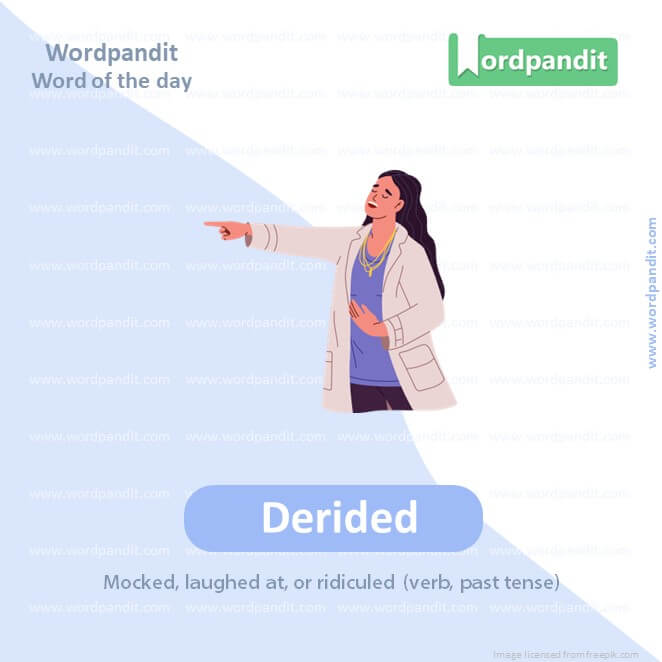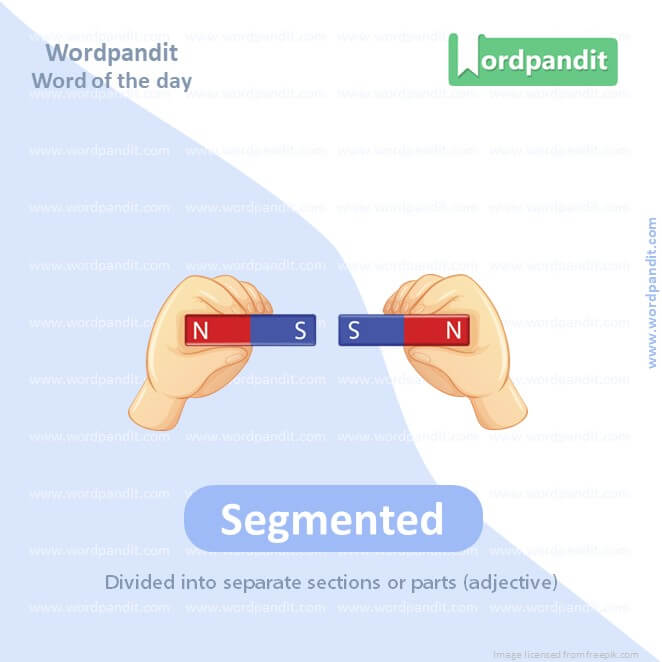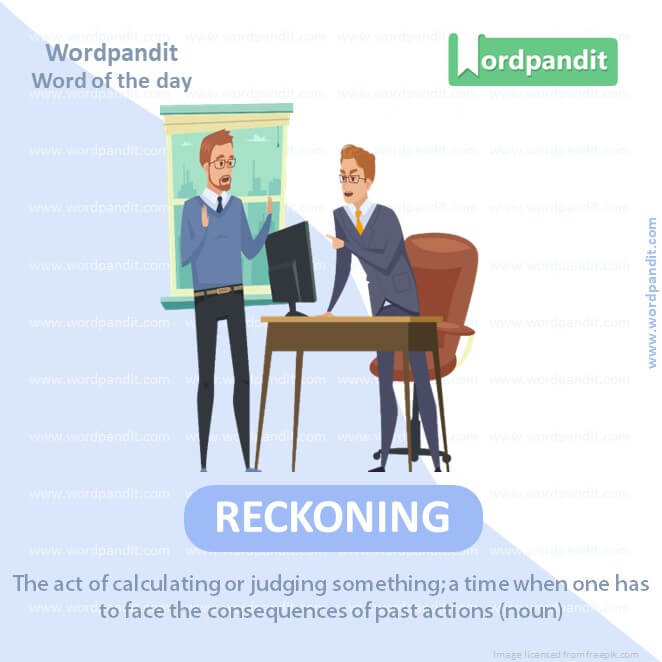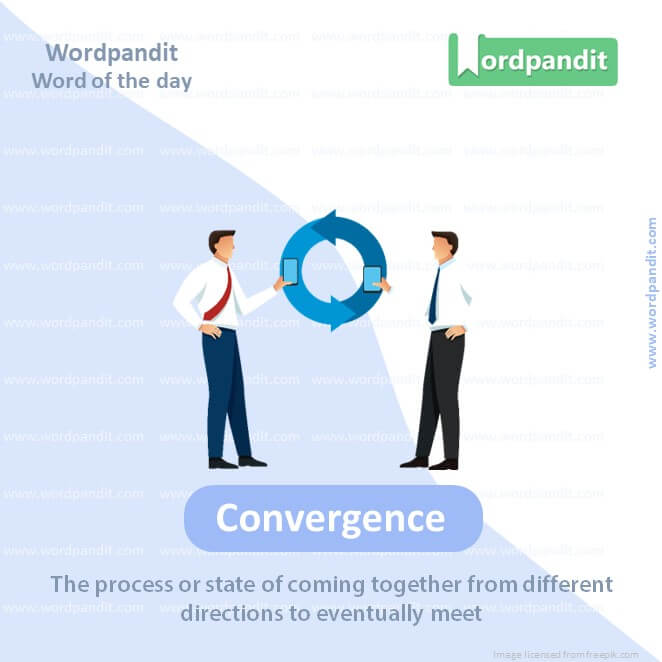Daily Vocabulary Words: List of Daily Used Words in Leading International Newspapers
Hi there. Welcome to this special section @ Wordpandit.
Our endeavour here is very simple: to highlight important daily vocabulary words, which you would come across in leading newspapers in the country. We have included the following newspapers in our selection:
• The New York Times
• The Washington Post
• Scientific American
• BBC
• The Guardian
• Psychology Today
• Wall Street Journal
• The Economist
We are putting in extensive work for developing your vocabulary. All you have got to do is be regular with this section and check out this post on a daily basis. This is your repository of words that are commonly used and essentially, we are posting a list of daily used words. Hence, this has significant practical application as it teaches you words that are used commonly in leading publications mentioned above.
Visit the website daily to learn words from leading international newspapers.

WORD-1: Derided
CONTEXT: Regina no longer uses the R-word or calls her friend “dyslexic”; her followers are no longer derided as an “army of skanks.”
SOURCE: New York Times
EXPLANATORY PARAGRAPH: Imagine if someone made fun of your drawing by laughing at it and saying it looks silly. That’s what “derided” means. It’s when someone talks about something or someone in a way that is very mean because they think that thing or person is not good or important.
MEANING: Mocked, laughed at, or ridiculed (verb, past tense).
PRONUNCIATION: də-ˈrīd
SYNONYMS: Mocked, Ridiculed, Scoffed, Taunted, Teased, Lampooned
USAGE EXAMPLES:
1. She was derided by her classmates for her outdated phone.
2. The idea was quickly derided as impractical.
3. Critics derided the proposal as foolish.
4. He derided their efforts as pointless.

WORD-2: Segmented
CONTEXT: The cliques at North Shore High still include the theater kids and the Plastics, but they are no longer segmented by race.
SOURCE: New York Times
EXPLANATORY PARAGRAPH: Think about a chocolate bar that can be broken into smaller pieces. Each piece is a part of the whole chocolate bar. “Segmented” is just like that; it means something is divided into parts or pieces.
MEANING: Divided into separate sections or parts (adjective).
PRONUNCIATION: seg-ˈmen-təd
SYNONYMS: Divided, Partitioned, Sectioned, Split, Fragmented, Sliced
USAGE EXAMPLES:
1. The worm’s body is segmented.
2. They analyzed the segmented market to target their ads better.
3. The segmented approach allowed for more focused discussions.
4. The report is segmented into several chapters.
WORD-3: Disinflation
CONTEXT: The stickiest part of inflation and therefore an indicator of whether disinflation is sustainable.
SOURCE: New York Times
EXPLANATORY PARAGRAPH: Imagine you have a balloon that’s slowly losing air, but it hasn’t gone all the way flat. “Disinflation” is a bit like that, but with prices. It means prices are going up slowly or not as fast as before, but they’re not actually dropping to zero.
MEANING: A reduction in the rate at which prices increase, characterized by a slow down in inflation rates but not a decrease in prices (noun).
PRONUNCIATION: dis-ˌin-flā-ˈshən
SYNONYMS: Slowdown, Decrease in inflation, Price stabilization, Economic cooling, Inflation reduction
USAGE EXAMPLES:
1. The government’s policies led to disinflation.
2. Disinflation has made it easier for people to afford goods.
3. The central bank aimed for disinflation to stabilize the economy.
4. After years of high inflation, the economy experienced disinflation.
WORD-4: Reinvigorating
CONTEXT: It’s the most exciting, reinvigorating, energetic and joyful experience of my life,” he said. “People have been remarkably, almost shockingly friendly.”
SOURCE: New York Times
EXPLANATORY PARAGRAPH: Think about how you feel after taking a long nap or having a refreshing drink on a hot day; you feel full of energy and ready to play again. “Reinvigorating” is when something makes you feel this fresh and full of life again.
MEANING: Giving new energy or strength to someone or something (verb).
PRONUNCIATION: re-in-ˈvi-gə-ˌrā-tiŋ
SYNONYMS: Revitalizing, Refreshing, Energizing, Reviving, Stimulating, Invigorating
USAGE EXAMPLES:
1. The vacation was reinvigorating for her.
2. They launched a new product line to reinvigorate the brand.
3. A walk in the park can be reinvigorating.
4. The program was designed to reinvigorate the local economy.
WORD-5: Piqued
CONTEXT: People there were a tad piqued by the Democrats’ decision to move the first official party vote to South Carolina.
SOURCE: New York Times
EXPLANATORY PARAGRAPH: Imagine you hear a secret, and now you really want to know more about it because it sounds so interesting. That feeling of being super curious or a bit annoyed because you want to know more is what “piqued” means.
MEANING: Stimulated interest or curiosity (adjective); feeling resentful or irritated due to a perceived insult (adjective).
PRONUNCIATION: pēkt
SYNONYMS: Intrigued, Interested, Curious, Provoked, Stimulated, Irked
USAGE EXAMPLES:
1. Her curiosity was piqued by the mysterious letter.
2. He was piqued at not being invited.
3. The article piqued my interest in the subject.
4. His comments piqued her pride.

WORD-6: Embrace
CONTEXT: If the Israeli government is prepared to embrace a diplomatic process leading to a demilitarized Palestinian state led by a transformed Palestinian Authority.
SOURCE: New York Times
EXPLANATORY PARAGRAPH: Think about giving someone a big hug because you’re happy to see them or because you want to show them you care. “Embrace” means just that, but it can also mean accepting something happily, like a new idea or change.
MEANING: Accepted or supported something willingly or enthusiastically (verb).
PRONUNCIATION: em-ˈbrās
SYNONYMS: Hug, Accept, Welcome, Adopt, Encircle, Clasp
USAGE EXAMPLES:
1. They shared a warm embrace.
2. She decided to embrace the new challenges.
3. The community embraced the idea with enthusiasm.
4. He embraced his friend goodbye.

WORD-7: Reckoning
CONTEXT: U.N. Secretary General Kofi Annan, describes this emerging Biden Doctrine as “the dual reckoning strategy.”
SOURCE: New York Times
EXPLANATORY PARAGRAPH: Imagine if, after playing a game, you sit down to figure out who won by counting all the points. “Reckoning” is like that; it’s when you count or think about something carefully to make a decision or form an opinion about it.
MEANING: The act of calcul ating or judging something;a time when one has to face the consequences of past actions (noun).
PRONUNCIATION: ˈrek-ə-niŋ
SYNONYMS: Calculation, Estimation, Judgment, Appraisal, Assessment, Evaluation
USAGE EXAMPLES:
1. The day of reckoning has arrived for the company.
2. By his reckoning, we should arrive by noon.
3. The final reckoning showed we had spent more than we thought.
4. His reckoning of the situation was accurate.

WORD-8: Convergence
CONTEXT: as I’m terming the convergence of strategic thinking and planning that my reporting has picked up — would have three tracks.
SOURCE: New York Times
EXPLANATORY PARAGRAPH: Think about two paths in the woods that start far apart but meet at the same point. “Convergence” is when things come together or meet at a single point, like the paths, ideas, or even people working together towards the same goal.
MEANING: The process or state of coming together from different directions to eventually meet (noun).
PRONUNCIATION: kən-ˈvər-jən(t)s
SYNONYMS: Meeting, Union, Junction, Intersection, Merging, Coalescence
USAGE EXAMPLES:
1. The convergence of technology and education offers new learning opportunities.
2. There was a convergence of opinions on the matter.
3. The rivers follow a course of convergence.
4. The conference promoted the convergence of ideas from different fields.
WORD-9: Whispering
CONTEXT: Netanyahu has been whispering to Biden in private that he might be ready one day — maybe — to consider some kind of demilitarized Palestinian state.
SOURCE: New York Times
EXPLANATORY PARAGRAPH: Imagine you’re sharing a secret with a friend by speaking very softly so no one else can hear. That’s “whispering.” It’s when you talk very quietly, using your breath more than your voice, to keep what you’re saying private or just because you need to be quiet.
MEANING: Speaking very softly using one’s breath without using the vocal cords (verb).
PRONUNCIATION: ˈwhis-pər-iŋ
SYNONYMS: Murmuring, Muttering, Hissing, Rustling, Sighing, Breathing
USAGE EXAMPLES:
1. They were whispering in the library.
2. I heard whispering behind me.
3. The leaves were whispering in the wind.
4. She was whispering a secret to her friend.
WORD-10: Multifront
CONTEXT: We are about to see a new Biden administration strategy unfold to address this multifront war involving Gaza, Iran, Israel, and the region.
SOURCE: New York Times
EXPLANATORY PARAGRAPH: Think about trying to play a game, watch TV, and do homework all at the same time. You’re doing things on many “fronts” or areas. “Multifront” means dealing with several different things or problems at once, like trying to keep up with all those activities.
MEANING: Involving or engaging in multiple activities or areas of concern simultaneously (adjective).
PRONUNCIATION: ˈməl-tē-ˌfrənt
SYNONYMS: Multi-pronged, Multi-aspect, Multi-dimensional, Broad-based, Comprehensive
USAGE EXAMPLES:
1. They faced a multifront challenge.
2. The company launched a multifront marketing campaign.
3. The government’s multifront approach to the crisis.
4. It was a multifront battle against the disease.
Vocabulary Meaning
In the ocean of language learning, ‘vocabulary meaning’ is akin to the colorful coral reefs that add depth and vibrancy to communication. Yet, infusing our interactions with this vibrancy is often a challenge for many language learners. The crux lies in effectively deciphering and employing the ‘vocabulary meaning’.
Learning ‘vocabulary meaning’ isn’t about merely gluing words to their definitions. It’s about forming a deep understanding and connection with these words that transcends rote learning. To gain a comprehensive grasp of ‘vocabulary meaning’, one needs to navigate beyond textbook definitions and commit to exploiting diversified resources such as novels, films, music, articles, and digital content. This allows one to encounter vocabulary in a variety of contexts and actual usage, giving deeper insight into their meaning.
However, understanding ‘vocabulary meaning’ involves another essential aspect—memory retention. Techniques such as spaced repetition and the Leitner System offer effective methodologies to maintain and consolidate the ‘vocabulary meaning’. Additionally, leveraging mnemonic strategies can help etch words into your memory by linking them with unique stories or imagery that are personal and easily recallable.
Another way of mastering ‘vocabulary meaning’ is by immersing yourself in the language. Engage in regular conversations with native speakers if possible or utilize language exchange platforms to practice your skills. This not only bolsters your understanding of how the vocabulary is used but also helps articulate the ‘vocabulary meaning’ in the societal and cultural contexts.
In conclusion, gaining a robust grasp of ‘vocabulary meaning’ is a journey rather than an end goal. It requires dedication, perseverance and most importantly, a multi-faceted approach that includes diversified resources, effective memory strategies, and real-life application. With these strategies in place, the depths of ‘vocabulary meaning’ are no longer daunting but become an enchanting exploration of language.













